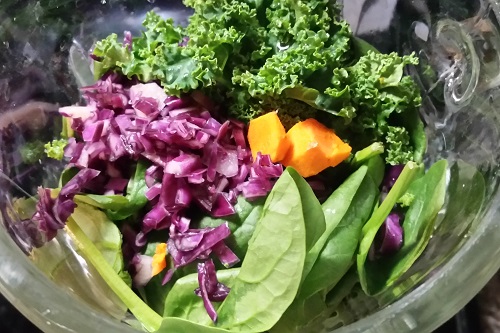The Best AIP Foods

When first starting the autoimmune protocol you will almost certainly struggle with finding foods that you can eat. Once you are well into the day to day frind it will be hard to five three to five meals per day that you can eat, that you want to eat, and are AIP friendly. A big part of the problem is that you probably lack a lot of staple ingredients that you used to use in day to day cooking. When I cleared out my refrigerator to make it AIP safe I was left with almost nothing left in there at all. Every one of the bottles in your refrigerator from dressings, to dips, to sauces, to seasonings...all will need to go. So what the heck are you supposed to cook with then?
The foods that I use now with my day to day cooking are totally different than the things that I used to cook with. This was one of the bigger challenges since, at first, you do not have the things that you need to cook food that is AIP friendly. Uncommon seasonings like coconut aminos are not something that most kitchens have in stock. Here are some of the most common products that I use to cook with and I recommend that you look at picking up as an "AIP starter kit" so to speak.
Coconut aminos - This is basically the sap from palm trees that is used as somewhat of a soya sauce replacement. This is very useful for layering flavors in things like soups and stews, and once you own it you will start using it in everything.
Coconut milk / cream - Coconut is one of the biggest and most common AIP replacement foods. All forms of coconut are useful in AIP cooking including coconut milk, coconut cream, coconut oil, and the aminos as mentioned above. I hope you like coconut...
Grass fed beef - Grass fed, organic beef should be a staple of your AIP diet. If you can afford it, buy fatty cuts of organic, grass fed beef, as the fats contained in these are extremely healthy for you. Many people simply can not afford organic grass fed beef. If you can't shop organic grass fed, then you should avoid fatty cuts of meat and instead purchase lean cuts (like eye of the round) as the fat from lower quality beef is where toxins and hormones from mass production accumulate. Find a way to afford off-cuts and bones of grass fed organic beef for making bone broth soup.
Free range and hormone free poultry - Organic free range and hormone free turkey and chicken is more expensive than mass produced and hormone altered chicken. Try to find higher quality chicken and turkey for making broth, and like the beef, avoid fatty cuts if you are unable to source organic free range ingredients.
Wild caught fish - The essential oils in fish are, well, essential in reducing inflammation. It is very important to eat a lot of fish to max out on the anti inflammatory benefits of these healthy oils. Avoid farmed fish and focus on wild caught fish that are low in mercury. Large and long living fish like sharks, halibut, and tuna can contain high levels of mercury and should only be eaten in minimal amounts.
Pink mineral salt - You will be counting on salt for most of your flavoring options when cooking AIP friendly foods so it is important to use a high quality salt like pink Himalayan mineral salt.
Sweet potatoes - Since regular potatoes are a nightshade vegetable and not AIP friendly you might find that sweet potatoes are one of the best replacement options for people that need to "feel full". When applied to different dishes, this versatile vegetable can bring flavor and fill up even the hungriest of people.
Squash - Squash is a good option as it is something that can bulk up food, add texture, be used as noodles, be mashed, baked, fried or utilized a dozen different ways. Best of all, squash does not have an appreciable sugar content and starches like sweet potatoes and plantains which are supposed to be eaten in limited quantities on an AIP diet.
Avocados - Avocado and avocado oil will be important to anyone eating an AIP diet as they are one of the only oils that you use use for both cooking and eating. Avocados provide good healthy fats and this is especially important for people who can not afford to get organic grass fed fatty meats and wild caught fish as much as you should. Avocados are a versatile fruit that counts as a vegetable as far as AIP is concerned due to the beneficial fats.
Vinegars - I would never have considered vinegar to be a food group unto itself but on the AIP diet vinegar is your friend. Coconut vinegar, apple cider vinegar, red wine vinegar. Just be sure that your vinegar contains no wheat or malt like some balsamic vinegars might have. Organic and gluten free vinegars are your best bet and since you will be counting on these vinegars to provide flavor to salads it is well worth the extra money for some good ones.
Olive / coconut / avocado oil - Olive oil, as well as avocado oil and coconut oil are pretty much all the oils that are available to you on an AIP for both cooking and eating. It is definitely worth the extra money to find higher quality and organic oils as these, along with the vinegars, will be the basis for flavor in almost all of the salads that you eat...and you will be eating a lot of salads.
Fermented vegetables - Fermented vegetables are something that many experts say can improve gut health in the same way that probiotics does...just way more effectively. Learning to make your own fermented vegetables and incorporating them into your daily diet will be an important aspect of adopting an AIP diet.
Fresh herbs - If nothing else, learning to cook AIP will be a crash course on herbs. While all seeds and nuts are not AIP safe, and this includes seed and nut based spices which account for a lot of spices you would normally eat day to day, there are many herbs which you can eat and you will need to stock up on as many of these fresh herbs as possible. Cilantro, fresh dill, garlic, cinnamon, turmeric, thyme...there are dozens of herbs and flavorings that you can use. You just need to learn what they are and pick some up for your essential kitchen stock.
Fresh fruit - The AIP diet requires extremely close monitoring of how much sugar, of any form, that you eat. Adding sugar in any form to food is out, but even too much fruit is a problem. You will want to have a wide selection of fruit and berries available to you when eating AIP but you should look at them more like a herb than a stand alone food since you should only eat two or three pieces of (lower sugar) fruit per day. So for example instead of eating an apple as a snack, you would add that apple to a salad so that it goes further, so to speak.
It is the stragest feeling to walk out of a grocery store empty handed because you could not find anything suitable to buy. This happens to me regularly now. If the vegetables are not fresh looking or there is limited organic and free range meats and fish available, then I just walk away empty handed. If this is happening to me then it must be difficult for others to find groceries that are AIP safe - and you actually want to eat them. I love grocery shopping...I don't expect that most people feel this way but I have always loved roaming around grocery stores, up and down every isle. If my grocery store experience is now largely a frustrating one I can only imagine that many other people also are experiencing this frustration when trying to stay strict AIP. Hopefully these essential AIP pantry items will help you.
AIP Recipes
The MCTD Blog
Things you should NEVER say to someone with MCTD

About the author - Steve Goodale is a blogger and technical specialist from Ontario Canada, winner of the 2018 Industry Leadership Award, who reaches over three million readers per year with his popular pool and spa blog. Steve started the www.CookForMeBaby.com blog about healthy eating after being diagnosed with a rare and incurable autoimmune disease. You can read more on his story about life with MCTD here. For more healthy cooking inspiration check out his other delicious recipes.
Copyright © 2018 - All Rights Reserved - www.CookForMeBaby.com
Template by OS Templates